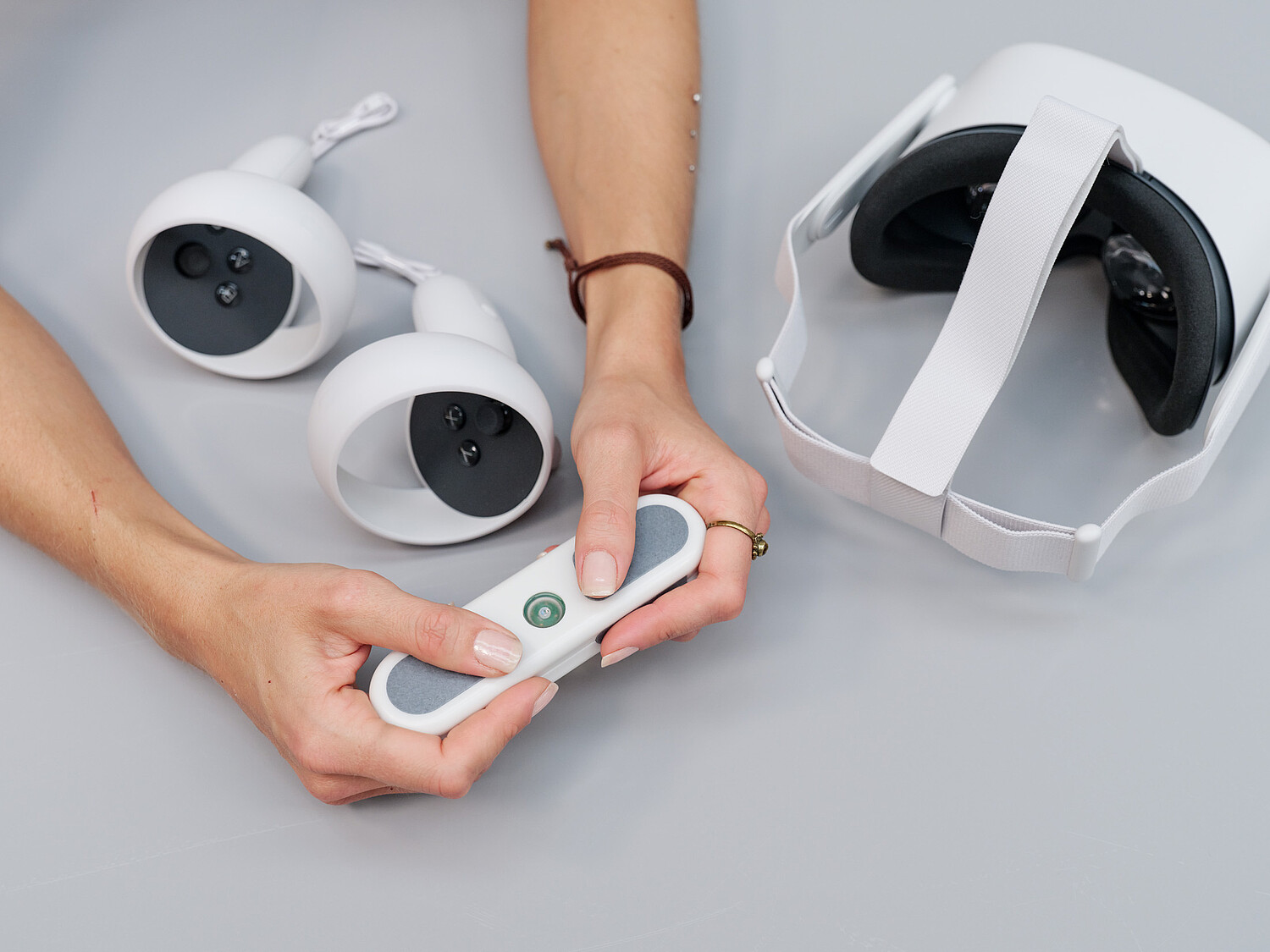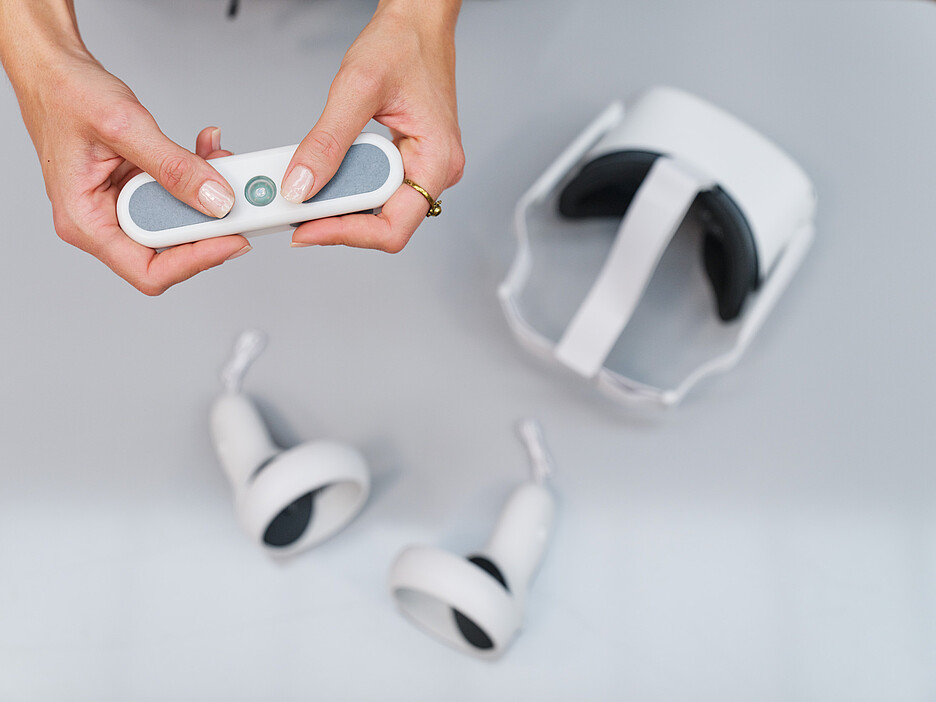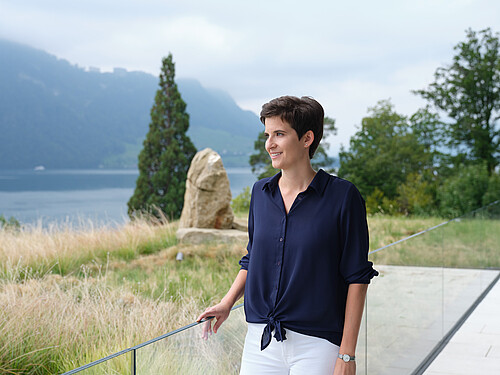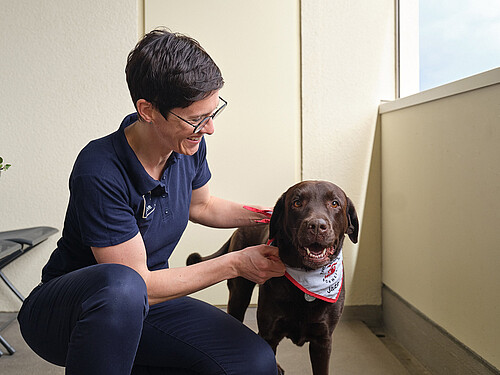
A playful approach to stress relief for the over 55s
Stress can have a detrimental effect on the health of older employees and thus negatively impact a company’s productivity too. A digital coaching app is being developed with the aim of preventing this. The ZHAW Institute of Occupational Therapy is participating in the development work.
Seemingly hardened by his long working life, Mr. Smith (a fictitious person) as we will call him here, will shortly be retiring. Despite this, as soon as his supervisor assigns him new jobs while he still has numerous unfinished jobs in his queue and has also been instructed not to work overtime, he becomes stressed. This is also confirmed by a device the size of a contact lens holder that he presses his thumb against. The device measures his heart rate variability and hence his stress hormone level. It confirms his high stress level.
Relaxation exercise with an octopus
An app on his smartphone connected to the device provides Mr. Smith with suggestions as to how he can relax straightaway. He opts for a serious game, i.e. a game with a serious learning purpose which, in this case, is designed for stress management. “This can be played discreetly at the workplace” says Verena Klamroth-Marganska, who is in charge of the mHealthINX subproject. Mr. Smith sees a small octopus asking him to breathe in and out uniformly.

“In many cases, it is simple games that help. And these make sense if it’s not possible to take a real break or a short walk”, the professor of occupational therapy explains. Once he has finished the game, Mr. Smith measures his stress level again. After work, he continues with the anti-stress programme at home. He puts on a virtual-reality headset and immerses himself in a delightful natural landscape where he picks fruit, is given instructions on how to overcome stress and then looks at his values for the previous weeks. “The aim is to achieve a longer-term change in behaviour and a better approach to dealing with stress.”
Stress is unhealthy and expensive
“Studies show that, while older employees can cope well with stress due to the experience they have acquired, they recover less rapidly from stress”, says Klamroth-Marganska. In people aged 55 and above, stress more frequently triggers other diseases, such as depression, anxiety states and cardiovascular disorders. And these, in turn, incur high costs – in Europe alone, work-induced depression is said to cost an estimated EUR 620 billion each year.

“The existing apps with relaxation methods frequently fail to meet scientific standards.”
Since March 2020, a consortium of ten organisations with head offices in three European countries has been working on a solution to this problem under the leadership of the Austrian Institute of Technology. One of these organisations is the Institute of Occupational Therapy at ZHAW. The consortium is aiming to develop a user-friendly solution employing a digital coach called mHealthINX that will support older employees in promoting and strengthening their mental health. The Research Unit for Occupational Therapy is ensuring that the users’ perspective is taken into consideration at each individual project phase. The app has been tested by employees aged 55 and over from different business lines in Switzerland and the Netherlands. The project is running until March 2023, by which time a clinical study on usability and user behaviour will have been conducted.
Unique project
Although there are already a large number of apps that offer relaxing games, and smart watches that display stress levels, this is nonetheless a unique project. “The user-centred, scientifically based approach is what makes the difference, since existing apps with relaxation methods frequently fail to meet scientific standards.” In addition, mHealthINX incorporates a range of components. Hence, employees can measure, evaluate and improve their stress levels using both objective sensors and subjective instruments such as self-assessments and questionnaires. A function called “Guardian” monitors the user’s overall progress in managing stress and indicates the critical stress level. Another function, the “Advisor”, provides support in managing acute stress situations and suggests personalised and context-sensitive interventions.
Virtual reality, 2D- and 3D-based interventions
The system also exploits synergies between different technologies. In public settings, use is made of unobtrusive GUI (graphical user interface) and 2D-based interventions on mobile phones. In highly stressful situations and more private settings, mHealthINX offers virtual-reality and 3D-based interventions and training sessions for stress-free management of everyday work.
Once the project has been completed, the digital coach will be made ready for the market. “Three years is a fairly short development period and there are still a number of items that need working on”, says Klamroth-Marganska. As with comparable projects, she is reckoning with a development time of several years from the idea through to readiness for the market.



0 Comments
Be the First to Comment!